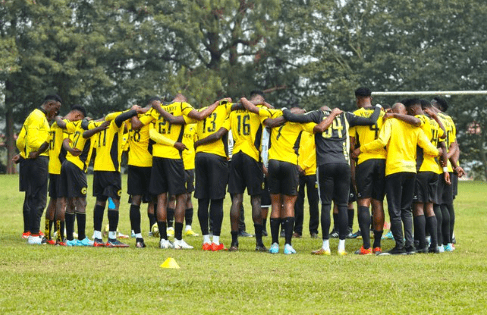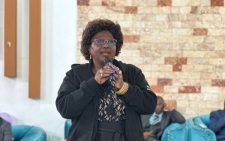From street woman to children’s home operator

Living as a homeless person in Nairobi exposed PASCHALIA NDUKU to a tough life, but she overcame it and is now helping others
It has been said there are four kinds of people in the world: those who have been caregivers, those who are currently caregivers, those who will be caregivers, and those who will need a caregiver.
Paschalia Nduku falls in the second category. After losing her husband, a former General Motors employee in a road accident in 1984, Nduku and her four children were evicted from their home in Eastleigh, Nairobi by her in-laws. The heartless act rendered them homeless and saw them move to the streets.
“Adjusting to life in the streets was difficult. I particularly loathed scavenging for food in garbage heaps, but I had no choice. I was jobless and had to feed my children and myself.
Whenever I managed to find something for us to eat, it was mostly rotten and we gagged every time we ate around the rot.
We wore torn clothes. Our hands were greasy with dirt and our feet were caked with all manner of filth,” she said.
Life in the open was dangerous and when it became unbearable, Nduku moved her family to Wakulima Market, aka Marikiti, in downtown Nairobi where they converted one of the numerous pavements into their bedroom.
Kicked out of town
“I rarely slept because I desired a better life for myself and my family. The few times I slept, it was with one eye open as I used to look out for trucks carrying supplies to traders.
When they arrived at 4am, I would mill around them like a hyena around a prey waiting to forage for leftover fruits and vegetables.
I fed myself and my family with some produce and sold the rest at GPO next to Nyayo House, but I rarely made sales because they were not of the best quality,” she explains.
Lady Luck smiled on the 63-year-old woman in 1986, when the then Provincial Commissioner of Nairobi, Fred Waiganjo summoned her after spotting her selling her goods near his office a couple of times.
“I was terrified because I did not know what to expect from him. When I went to his office, he expressed his displeasure at my work saying I was an eyesore within the Central Business District.
Surprisingly, he offered me land in Katwikira in Kibera and forbade me from returning to the city centre to continue with my work.
He gave me some documents and asked me to take them to the then chief of Kibera, a certain Chief Okeka. I obliged and left his office immediately,” she said.
Nduku and her children slowly adopted the strenuous everyday life in Kibera but, she did not fail to notice social problems affecting children and the youth such as alcoholism, drug addiction among parents, violence, disease and crime.
“When we moved to Kibera, I started washing people’s clothes in Olympic Estate for a living. After saving some money, I put up a small shack where I was offered land and because it is near the bus terminus, I met many young mothers who could hardly afford to feed their children.
These children were forced on a daily basis to compromise their long-term well-being to meet their short term survival needs.
They were engaging in transactional sex to get money for basic services such as rent and school fees,” she said.
With the help of the Sisters of Charity community in Kibera, Nduku built a house. In 2000, she started the Inua Mimi Rescue Centre, where she prepared meals for destitute children and offered them accommodation.
“Malnutrition in children under age five is very high and health facilities can hardly cope with the demand here.
The skyrocketing cost of food has pushed an already desperate people into extreme poverty, rendering them incapable of feeding their families. Organised crime and criminal elements within slums have made many people homeless.
If a family fails to pay protection fees, these gangs make it impossible for them to access their homes,” she said.
Beacon of hope
In 2013, Nduku started teaching 15 out of the 30 children she was taking care of. When children from the neighbouring communities expressed interest in learning, she hired experienced teachers to help her out, but they left after she failed to pay them on time.
“When some children became old enough to go to school, I did not have money to get them quality education. I started teaching them basic things such as the alphabet and numbers. I initially hired two teachers to train them, but I could not keep them,” she said.
Donors and well wishers came to her rescue and for six years now, the centre has been surviving on their generosity. Nduku also sells homemade peanuts, wallets, ladies handbags and school bags for a living.
“The centre has now hired four experienced teachers on a full time basis, two workers and two volunteers to help with its daily operation. It now houses 50 children who study at Ayang Primary School in Kibera.
Photo Start Foundation based in New York through its director, David Lehman introduced photography classes and we recently exhibited photographs by our students processed using Artificial Intelligence at the Alliance Française, Nairobi,” she said.
Nduku hopes the centre will grow with time and become a beacon of hope to vulnerable children.












